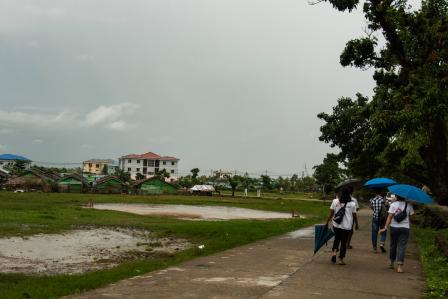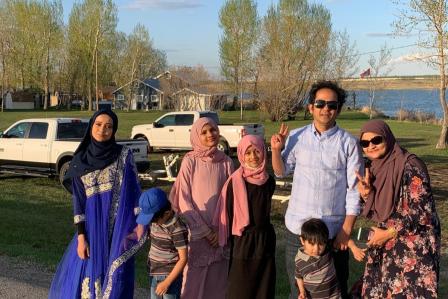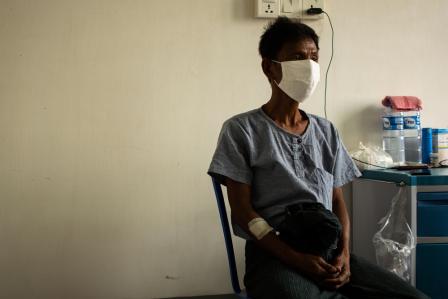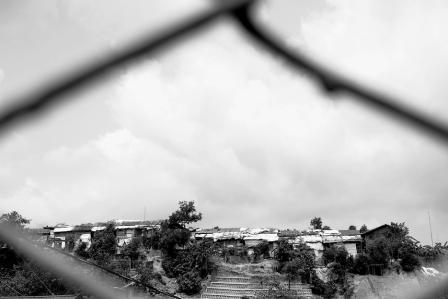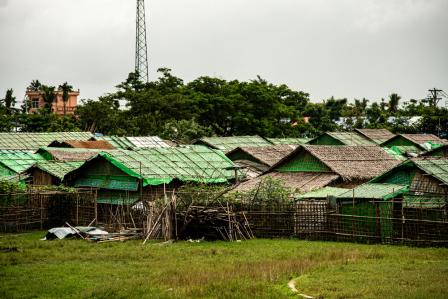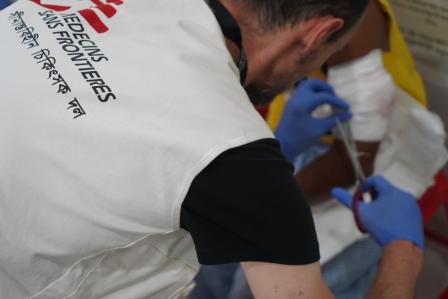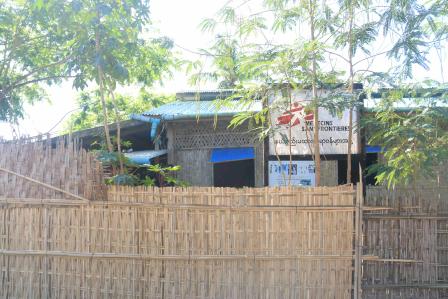Myanmar: Doctors Without Borders suspends its medical activities in northern Rakhine State
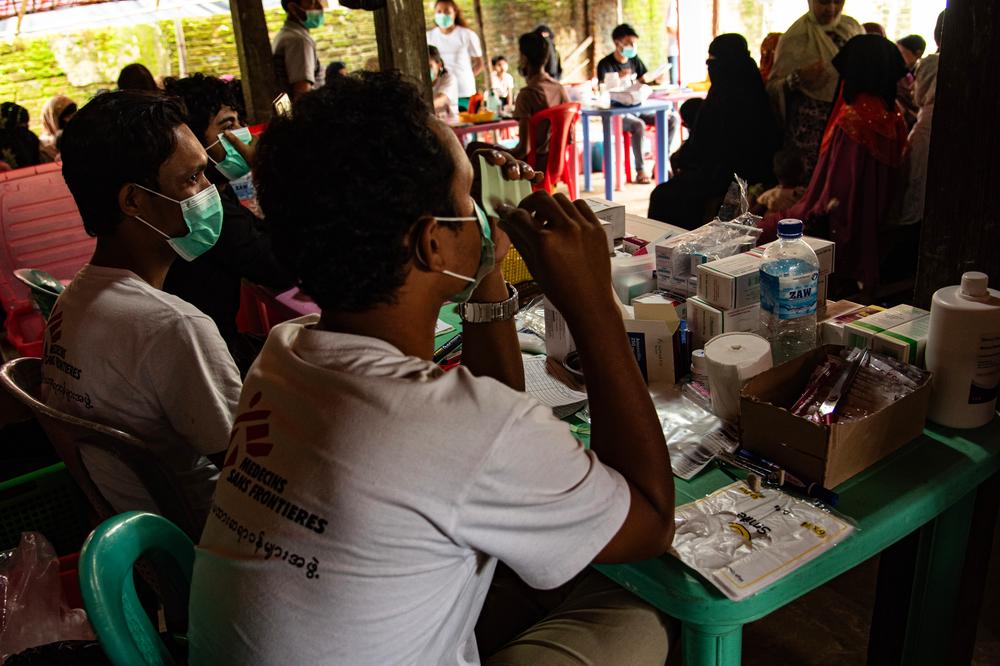
Doctors Without Borders staff distribute medication to patients during a mobile clinic in Northern Rakhine State.
In Rakhine state, the resumption of conflict in November 2023 put a halt to Doctors Without Borders’ regular mobile clinics, where our teams treat 1,500 patients on a weekly basis. Route blockages and blanket travel restrictions due to active conflict in areas where we run these clinics made it impossible for Doctors Without Borders teams to even support emergency referrals for critically ill patients.
Myanmar, October 2023. © Zoe Bennell/MSF
The extreme escalation of conflict, indiscriminate violence, and severe restrictions on humanitarian access in northern Rakhine State, Myanmar, have forced Doctors Without Borders / Médecins Sans Frontières (MSF) to suspend its medical humanitarian activities in the townships of Rathedaung, Buthidaung and Maungdaw.
Doctors Without Borders ran 14 mobile clinics in northern Rakhine providing essential medical services to all communities, including Rakhine, Rohingya and other minority groups who often had no other access to healthcare.
We are very concerned for the people who have been severely impacted by the conflict. They continue to endure and remain exposed to the deliberate destruction of lives and property, forced recruitment, displacements, and restricted humanitarian access with no options to seek safety due to the ongoing clashes and hostilities. This indefinite suspension of our activities will leave them with zero access to healthcare in the face of huge needs.
A Rohingya person who was forced to flee from the clashes in Buthidaung told us: “It would be an honour if a bomb killed all of us together, so we don’t have to suffer anymore. Dying together is better than this suffering.”
Restrictions on humanitarian access
Since November 2023, Doctors Without Borders teams have been unable to run regular healthcare services in the wider areas of both central and northern Rakhine. We have faced severe restrictions on humanitarian access such as difficulties in delivering care to our patients and facilitating referrals to the Township hospitals, inability to move medical and basic supplies, and bear witness to the total decimation of the healthcare system.
All communities are without proper primary and secondary healthcare and our teams observed pregnant women and unborn babies losing their lives due to the lack of healthcare. Doctors Without Borders recorded nine maternal deaths or stillbirths between November 2023 and March 2024. On 15 April, the Doctors Without Borders office and pharmacy in Buthidaung were burned down, in this area where both private and public health facilities were already non- functional.
Calling for access to reach the most vulnerable
Despite not being able to provide care in the area currently, Doctors Without Borders remains committed to providing much needed humanitarian support to patients and people in northern Rakhine. We will continue to maintain our presence in northern Rakhine that will enable us to immediately resume activities as soon as conditions improve.
We are calling on all parties to the conflict to ensure humanitarian access in Rakhine State and respect the protected status of healthcare facilities and staff. Access to medical care for the most vulnerable communities must be restored immediately to prevent further senseless loss of life and suffering.
Read the Burmese version.
